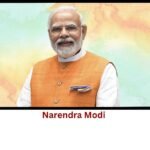The Biography of Narendra Modi
Narendra Modi, born on September 17, 1950, is an Indian politician and the current Prime Minister of India. He is a member of the Bharatiya Janata Party (BJP) and the Rashtriya Swayamsevak Sangh (RSS). Modi is known for his charismatic leadership, strong nationalist ideology, and his focus on economic development.
Early Life and Education
Narendra Modi was born in Vadnagar, a small town in the state of Gujarat, India. He grew up in a humble family of grocers and helped his father run their tea stall. Despite facing financial challenges, Modi was a bright student and had a keen interest in politics from a young age.
Modi completed his higher secondary education in Vadnagar and went on to earn a Bachelor’s degree in Political Science from the University of Delhi. He also pursued a Master’s degree in Political Science from Gujarat University.
Political Career
Narendra Modi’s political career began in the early 1970s when he joined the RSS, a Hindu nationalist organization. He quickly rose through the ranks and became a prominent figure within the organization. In 2001, Modi was appointed as the Chief Minister of Gujarat, a position he held until 2014.
During his tenure as the Chief Minister of Gujarat, Modi implemented various policies and initiatives aimed at promoting economic growth and development in the state. His focus on infrastructure development, attracting foreign investment, and improving the business environment earned him praise and recognition.
In 2014, Narendra Modi led the BJP to a historic victory in the Indian general elections and became the 14th Prime Minister of India. His government has since implemented a range of reforms and initiatives, including the introduction of the Goods and Services Tax (GST), the Make in India campaign, and the Swachh Bharat Abhiyan (Clean India Mission).
Achievements and Impact
Under Narendra Modi’s leadership, India has witnessed significant economic growth and development. The country has emerged as one of the fastest-growing major economies in the world, attracting foreign investment and fostering innovation and entrepreneurship.
Modi’s government has also focused on social welfare programs and initiatives aimed at uplifting marginalized communities. The Pradhan Mantri Jan Dhan Yojana, the Pradhan Mantri Ujjwala Yojana, and the Ayushman Bharat scheme are some of the notable initiatives that have benefited millions of Indians.
Furthermore, Modi’s foreign policy has been characterized by an assertive approach, strengthening India’s position on the global stage. He has actively engaged with world leaders and played a crucial role in shaping international alliances and partnerships.
Controversies
While Narendra Modi has enjoyed widespread popularity, his tenure has also been marred by controversies. The 2002 Gujarat riots, which occurred during his time as Chief Minister, resulted in significant loss of life and raised questions about his handling of the situation.
Additionally, his government’s decision to implement demonetization in 2016, aimed at curbing corruption and black money, faced criticism for its impact on the economy and the hardships faced by the common people.
Conclusion
Narendra Modi’s journey from a small town in Gujarat to becoming the Prime Minister of India is a testament to his determination and leadership skills. He has left an indelible mark on Indian politics and has been instrumental in shaping the country’s economic and social landscape.
While his tenure has been marked by both achievements and controversies, Narendra Modi continues to be a prominent figure in Indian politics, with a strong base of supporters who believe in his vision for a prosperous and inclusive India.


